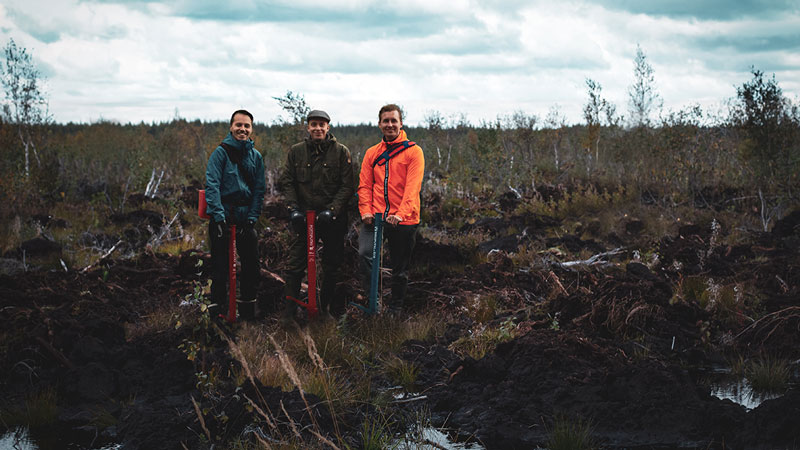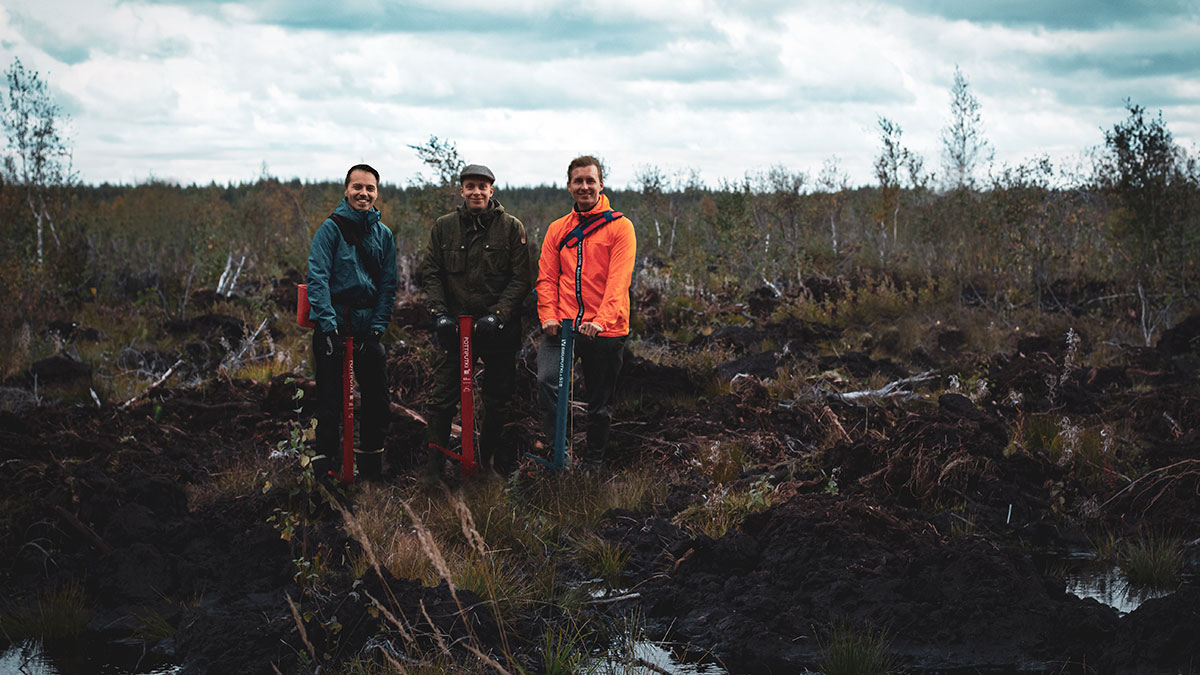Castrén & Snellman is participating in a reforestation project in which Finnish carbon sequestration company Carbon Deed has planted three hectares of pine trees in Kärsämäki, Finland.
Castrén & Snellman Begins Reforestation Project – Three Hectares of Forest Binds Carbon and Supports Biodiversity


Anna Kuusniemi-Laine
Fighting climate change not only requires emissions reductions, but also the removal of carbon dioxide from the atmosphere. By planting trees, Castrén & Snellman is doing its own small part to increase Finland’s carbon sink. Over its 60-year lifecycle, this forest will bind an estimated 750 tonnes of carbon dioxide, which is the size of the firm’s carbon footprint in 2019.
In addition to pine, the plot already has birch growing on it naturally, and with time, it is expected to grow spruce as well. Forest biodiversity helps provide habitats for a wide array of species of animals, plants and fungi.
‘Having mapped our carbon footprint, it was time to look into the various ways we could do our part in the fight against climate change. We want to promote effective practices to increase carbon sinks. Reforestation gives us the opportunity to do develop carbon sinks domestically while helping to support Finnish nature’, said the firm’s Head of Sustainability, Partner Anna Kuusniemi-Laine.
Castrén & Snellman’s partner in this project, Carbon Deed, always purchases the plots to be reforested itself in order to ensure that the planted forests will not be used for commercial purposes or felled for pulp mills.
‘In time, the trees will be used in ways that will bind carbon dioxide, such as wood construction or biochar, or left standing to develop into old-growth forest, which will support biodiversity’, said Mikko Järveläinen from Carbon Deed.

Picture Cardon Deed. Cardon Deed’s founders from left to right: Aleksi Poropudas, Niklas Alho and Mikko Järveläinen.
Reforestation as Part of the Firm’s Work to Promote the UN’s Sustainable Development Goals
As a member of the UN Global Compact, Castrén & Snellman is committed to the UN’s sustainable development goals and actions against climate change as well as to sustainably manage the environment.
This reforestation project is part of the firm’s work to tackle its climate impact. The project supports biodiversity and promotes the development and spread of environmentally friendly solutions.
Targeting a 25% Carbon Footprint Reduction by 2025
Castrén & Snellman completed its first carbon footprint calculation this summer. Based on the calculation, the firm set itself the goal of reducing its carbon footprint by 25% from its 2019 level by 2025.
Earlier this autumn, Castrén & Snellman compensated its 2019 carbon footprint by buying Gold Standard certified emissions reductions through a clean water project in Rwanda that will reduce the burning of wood
Carbon Footprint Mapping, Reduction and Compensation Part of C&S’s Sustainability Work
The mapping, reduction and compensation of its carbon footprint are now a part of Castrén & Snellman’s annual sustainability work. The firm will continue to refine its picture of its climate impact and follow-up on its emissions reduction targets to make sure they remain ambitious.




